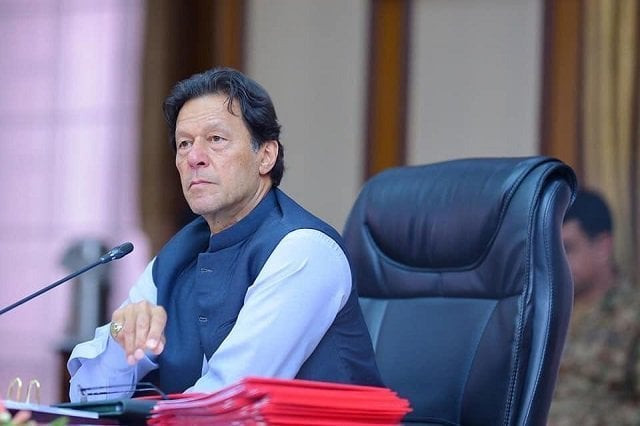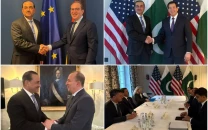PM Imran seeks ‘out-of-box’ proposals on power, gas tariffs
Govt decides to reduce taxes on food items

Prime Minister Imran Khan. PHOTO: PID/FILE
“Expensive electricity and circular debt are a result of the previous governments’ non-profitable agreements and arrangements made without taking into account the patience of the masses and keeping national interest on the backburner,” the prime minister said while chairing a high-level meeting on Monday.
Attendees at the meeting included Energy Minister Omar Ayub, Planning and Development Minister Asad Umar, Finance Adviser Dr Abdul Hafeez Sheikh, and PM’s aides Dr Firdous Ashiq Awan, Shehzad Qasim and Nadeem Babar.
Premier Imran said his government attaches the highest priority to the masses as well as to the promotion of the industry to keep the wheels moving in the economy.
Various proposals were presented for reducing electricity and gas tariffs during the meeting.
Nadeem Babar, the PM’s special assistant on petroleum, presented a long-term plan for bringing down gas prices.
The premier was informed that the masses are bearing the burden of high electricity and gas tariffs due to the agreements signed by the previous governments.
The meeting acknowledged that the incumbent government is striving to introduce administrative reforms in the power and gas sectors to curb pilferage and wastage as well as to provide electricity to consumers on reasonable rates.
Imran was informed that the steps taken by the government to control electricity theft have borne fruit as an amount of Rs122 billion has been recovered.
He was also told that a 38 billion-rupee monthly increase in the circular debt has been brought down to Rs12 billion, which would be decreased to zero by the year end.
Separately, Premier Imran chaired another meeting to review the prices of food items. It was decided to reduce taxes on basic food items in order to bring them within the purchasing power of the common man.
The matter would be sent to the Economic Coordination Committee of the Cabinet to devise a strategy.
The meeting also agreed to double the government’s wheat procurement targets for the current year to address its demand and supply situation and bring stability in its price.
“It is the government’s foremost priority to provide relief to the common man by stabilising and reducing the prices of essential commodities to the most possible extent,” Imran said.
“The poor people could get essential items on appropriate prices and the burden of inflation can be minimised for such segments.”
The meeting pored over different proposals regarding stabilisation and reduction in the prices of various essential items, including wheat, sugar, potatoes, tomatoes, onion, ghee and pulses, and providing relief to the masses.
The prime minister directed to put special attention on compilation of true data of the stocks of basic commodities like wheat, sugar and other items, and their correct demand and supply estimates, so that measures could be taken in advance.
He also called for giving special attention to discouraging and curbing smuggling and hoarding.
The prime minister directed the provincial governments to immediately consider proposals regarding a decrease in the price of wheat, so that a formal announcement in that respect could be made.
The meeting ecided that the provincial governments of Punjab and Khyber-Pakhtunkhwa should immediately consider proposals for decreasing the wheat price.
In order to ensure availability of sugar at an appropriate price, it was decided that the Sugar Advisory Board would fix the price through third party evaluation.
The Commerce Division was directed to develop, in consultation with the stakeholders, a mechanism to pass on the benefit of reduction in the ghee prices in the international market to the masses.
The meeting decided that the smuggling of wheat, onion, tomatoes and other items through eastern and western borders would be strictly checked.



















COMMENTS
Comments are moderated and generally will be posted if they are on-topic and not abusive.
For more information, please see our Comments FAQ